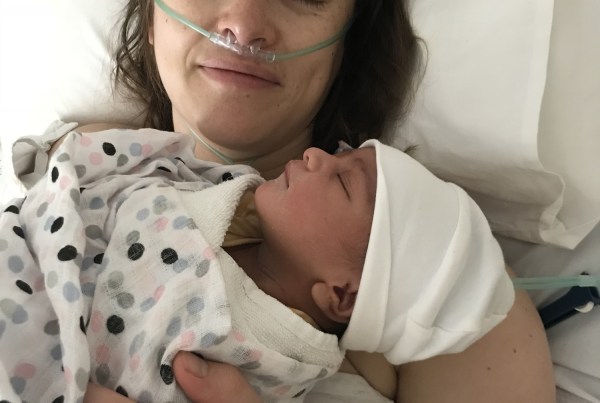Writing by Quincy Malesovas // Illustration by Arielle Jennings // The detriments that ED-sufferers face when they are sitting alone in their room. Depression, loneliness, hair that falls out in clumps, a body that will never be good enough.
Writing by Quincy Malesovas // Illustration by Arielle Jennings

It’s been a long time since I’ve thought about my body. By “long time” I mean 4-6 months. By “think about my body”, I mean let the anxiety take hold. Allow myself to fall prey to preoccupation about size. About whether I need to walk more steps today or do some strength training before bed or ignore my hunger pangs for a few more hours.
“Just hold out”, I would tell myself. “Wait until the next meal, no snacking”. This was just one of many rules I self-imposed over the last seven years or so. They were always changing, every time with a different focus. Whether it be eating “clean”, following a rigid exercise regime, limiting food intake, or all of the above, I always had a strict set of guidelines for myself. Straying from them whatsoever set me into a frenzy.
We are now moving towards an age where people are more vocal about their eating disorders. Celebrities have “come out” as anorexic, bulimic, orthorexic, binge-eaters. We blame it on the culture; we blame it on genetics. On parents who are too strict or peers who are too mean.
But the reasons why one develops an eating disorder don’t really matter. Even the rules and behaviours themselves don’t matter, at the end of the day. Of course, with any problem, it’s important to tackle it by the roots. But in the case of disordered eating, we must also bring to light the effects.
The detriments that ED-sufferers face when they are sitting alone in their room. Depression, loneliness, hair that falls out in clumps, a body that will never be good enough. Or what they experience when surrounded by others. Anxiety, unwanted comments, a mind that won’t shut off.
We must recognise the numbers crunched, hours on end devoted to thinking about food and weight, zest for life lost, freedom taken. When I was in the throes of my eating disorder, I was never present. I floated through life as if it were someone else’s. I tried so hard to control everything that I ended up as nothing more than a spectator, sitting on the sidelines, calculating, watching everyone else live (what appeared to be) effortlessly.
And it doesn’t stop there. Eating disorders are the deadliest mental illness. They halt sex drives and periods and sometimes hearts. They break bones and families. They turn one’s skin and hair and outlook on life to a dull grey. And they are so much more prevalent than we all realise; all of us who suffer and feel alone and think we are the only ones.
I take solace in the fact that others have experiences that mirror mine. I am sad for them and for myself, but comforted by how universal the issues that we face are. I am pleased by progress, even the smallest and slowest amount.
The fact that I can go out to eat without pre-planning the exact meal that I will order. That I cancelled my gym membership and deleted my nutrition app. Everyone’s journey looks different and takes a different amount of time; none is harder or more legitimate than the others. At this point, I’ve talked and written about my eating disorder a lot- to the point where I wonder if people are sick of hearing about it. And then I remind myself that as with any struggle, if you ignore it, it will grow back quicker and stronger. You forget how bad it was, and you lose sight of the maintenance needed to keep it at bay.
It’s been a long time since I’ve thought about my body, but that doesn’t mean I’ve stopped thinking about how not to think about my body. I distract myself with other things- things that don’t revolve around food or weight or fitness. But I also practise being okay with wherever and whoever I am, however I am feeling.
Today, my appreciation for life is enough motivation to remain present. To ignore my disordered tendencies to the best of my ability; to remember the past; to look towards the future. I will not pretend like eating disorders are easy to overcome. I won’t tell you that they’re harmless, but I also won’t tell you that you’re alone or that you can’t hope for better days. I won’t tell you that I no longer struggle, or that my (or your) struggle will ever end, but I can offer words of advice from someone who has been through the wringer and come out on the other side- stronger than before.






